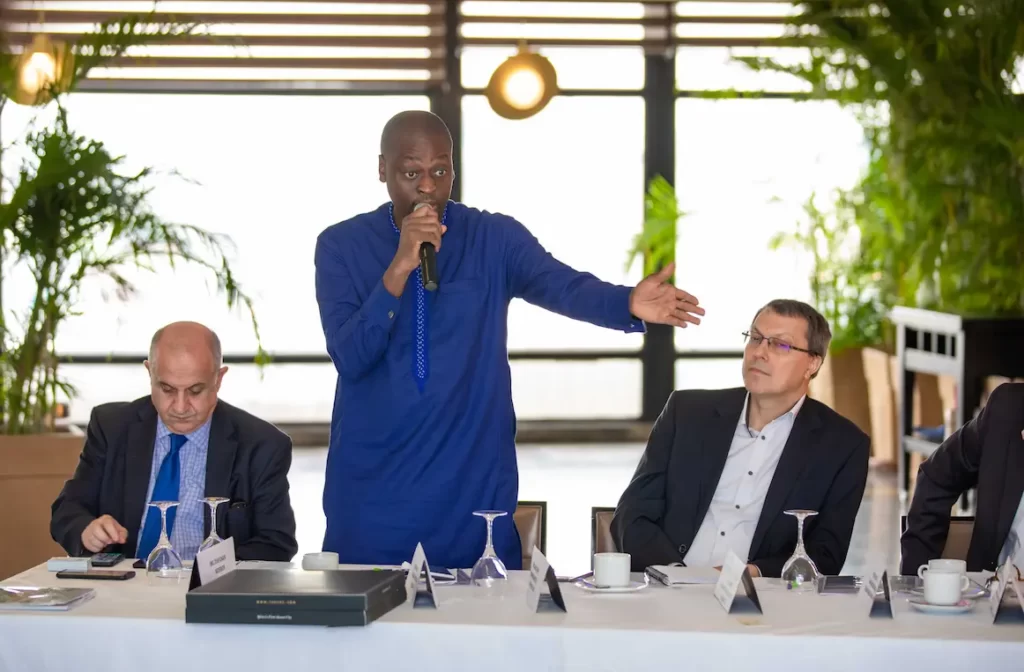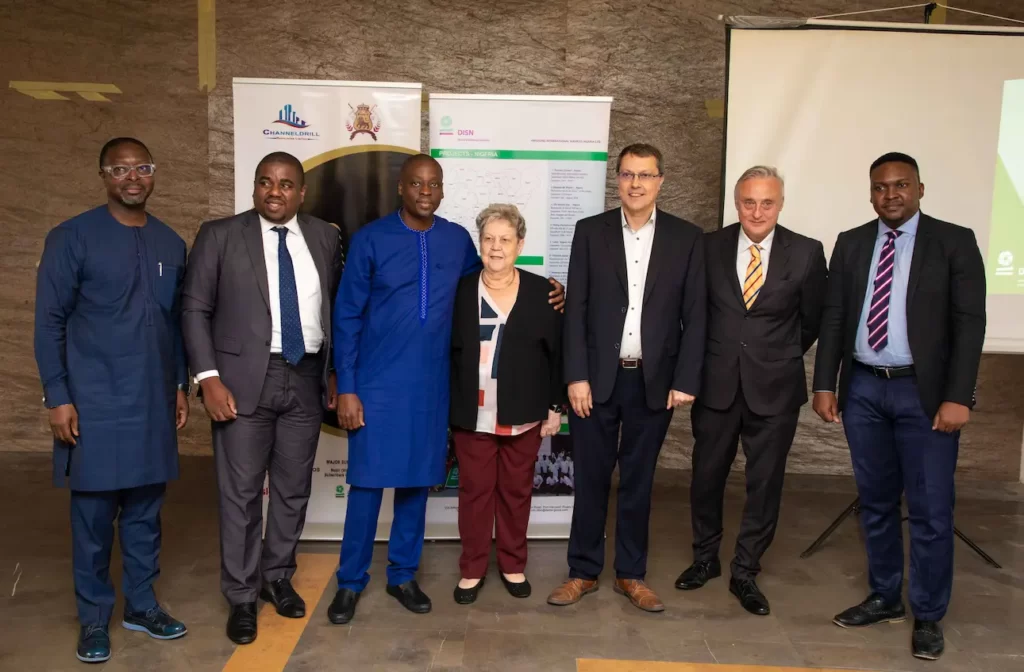Building a Sustainable City: TheIIBC as a Case Study
The Nigerian Belgian Chamber of Commerce organized a conference titled “Create Land for the Future” at the Sky Restaurant, Eko Hotel and Suites in Lagos. This event served as a platform for experts and professionals to discuss the critical topic of building sustainable cities. One of the highlights of the conference was a presentation by our Managing Director on “Building a Sustainable City: TheIIBC as a Case Study.” During this enlightening session, Mr. Femi Akioye, the Managing Director of Channeldrill Resources Limited, shared valuable insights on the concept of a sustainable city and its importance for our future. This blog post aims to provide an overview of the event and shed light on TheIIBC, our ongoing project that exemplifies the principles of sustainability.


Understanding Sustainability in Cities
A sustainable city can be defined as one that operates independently and does not exhaust or harm its surrounding environment. It focuses on utilizing renewable resources efficiently, minimizing waste generation, and promoting a harmonious relationship between human activities and natural ecosystems. Sustainable cities aim to create a livable environment for present and future generations by adopting innovative solutions to address the challenges of urbanization and climate change.
The IIBC: A Model for Sustainable Living
At the conference, Mr. Femi Akioye showcased TheIIBC (International Integrated Business City) as an exemplar of a sustainable city. This ongoing project by our company serves as a blueprint for creating a self-sufficient and environmentally conscious urban center. TheIIBC aims to demonstrate how a city can meet its residents’ needs without compromising the well-being of the planet.
Renewable Energy: The backbone of The IIBC
One of the fundamental aspects of sustainability in TheIIBC is its reliance on renewable energy sources. The city’s power generation systems are designed to harness solar, wind, and other renewable sources of energy, minimizing the dependence on non-renewable resources like fossil fuels. By integrating clean energy solutions, TheIIBC aims to achieve energy independence and reduce its carbon footprint significantly.
Resource Management: Waste as a Resource
TheIIBC prioritizes resource efficiency and waste management. The city’s infrastructure is designed to promote recycling, reuse, and waste reduction. Waste management systems utilize innovative technologies to convert organic waste into valuable resources such as compost and biogas. This circular approach to waste management ensures that materials are continuously reused, reducing the strain on natural resources and minimizing pollution.
Transportation and Mobility
To foster sustainable mobility, TheIIBC emphasizes the development of efficient public transportation systems, pedestrian-friendly infrastructure and non-motorized modes of transportation. By integrating walkable neighborhoods, dedicated cycling lanes, and accessible public transit networks, TheIIBC encourages residents and visitors to adopt eco-friendly commuting options, reducing congestion, air pollution, and carbon emissions.
Green Spaces and Biodiversity Conservation
Creating green spaces and preserving biodiversity are vital elements of TheIIBC’s sustainability vision. The city’s urban planning incorporates ample parks, gardens, and green corridors, providing residents with access to nature and promoting a healthy lifestyle. Furthermore, TheIIBC prioritizes the conservation of natural habitats and the restoration of ecosystems, fostering a thriving environment for both humans and wildlife.
Conclusion
The conference organized by the Nigerian Belgian Chamber of Commerce, titled “Create Land for the Future,” shed light on the significance of building sustainable cities. Our Managing Director’s presentation on “Building a Sustainable City: TheIIBC as a Case Study” highlighted the transformative potential of TheIIBC project. This ongoing initiative serves as a living example of how a city can operate in harmony with its environment, utilizing renewable resources, and embracing innovative solutions. By prioritizing renewable energy, efficient resource management, sustainable transportation, and green spaces.
TheIIBC strives to create a model for urban development that can be replicated worldwide. As we continue to work towards the completion of TheIIBC, we are committed to setting new standards for sustainable living and contributing to a greener and more resilient future.